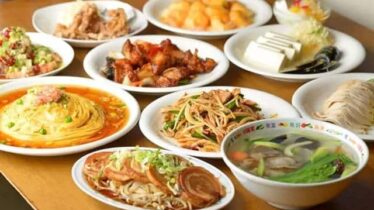The Proper Way to Address Your Older Brother in Chinese
In Chinese culture, there are specific terms used to address older brothers that convey respect and hierarchical family roles. Knowing the correct way to refer to an older brother in Chinese is important for proper etiquette and communication.
The most common and formal way to address an older brother in Mandarin Chinese is “gēgē” (哥哥). This translates directly as “older brother” and is used for male siblings who are older than you.
Here are some key things to know about using gēgē properly in Chinese:
- Pronunciation is key – gēgē is pronounced as “ge-ge” with a hard G sound. Getting the tone right is important.
- It can be used on its own as a form of address or combined with their given name. For example “Gēgē Xiǎomíng” to address an older brother named Xiaoming.
- Gēgē is appropriate to use by both younger brothers and sisters when addressing or referring to an older brother.
- It is commonpractice to add gēgē after the surname as a polite title. Such as “Wáng gēgē” for an older brother with the surname Wang.
- The term reflects the hierarchy of age and gender roles in Confucian-influenced Chinese families. Older brothers command more respect and authority.
- The corresponding term for an older sister is “jiějie” – so gēgē specifically denotes an elder male sibling.
- Gēgē is used in both formal and informal situations. It does not change based on setting.
In addition to gēgē, there are some other options for addressing older brothers in Chinese depending on the context:
- “Lǎo gē” (老哥) – This means “older brother” but in a more informal or affectionate tone. Lǎo adds emphasis.
- “Dàgē” (大哥) – The dà means big or great, so this conveys “big brother”. It shows admiration and respect.
- Full name – Using a sibling’s full name is formal and appropriate in some contexts. For example, “Wang Dawei” for an older brother named Dawei Wang.
- Family title + surname – Addressing as “Xiōng Wáng” – the xiōng means older brother or malesibling. Together it becomes “Brother Wang”.
- Professional title + surname – If an older sibling has a professional/work title, this can be used. For example, “Doctor Wang” or “Principal Li”.
There are some key cultural implications and etiquette to keep in mind when addressing older brothers and understanding sibling titles in Chinese:
- Status – Age and gender play a major role in determining status, rank and hierarchy in Chinese culture. So proper siblingterms convey position and authority.
- Respect – Using the right sibling addresses demonstrates respect for family roles and social structures in Chinese society.
- Intimacy – While formal titles show respect, switching to informal terms like lǎo gē conveys intimacy and affection between siblings.
- Reciprocal terms – The corresponding terms used by the elder sibling are also important. Older brothers may address younger siblings as “dìdi” or “mèimei”.
- Who uses the terms – Younger siblings and even in-laws will address their elder brothers formally. But elder siblings use first names with younger ones.
- Multiple siblings – Birth order also matters. The eldest brother commands the most respect and authority as the firstborn son.
Beyond just linguistic etiquette, how you treat and interact with elder siblings in Chinese culture is also significant:
- Allowing elders to speak first
- Not interrupting
- Doing tasks and favors when asked
- Avoiding conflict or arguing with elder siblings
- Letting them take the lead and make decisions
- Being humble and not boastful
So in summary, gēgē is the standard and safest way to address an older brother in Chinese. But lǎo gē and dàgē can also be used appropriately based on context and relationship. Getting the toned pronunciation correct is key. And understanding the cultural significance of birth order, age and gender roles helps explain why using the proper sibling terms matters greatly in Chinese society. With the right etiquette, you can show respect and enhance your relationships with Chinese elder brothers.



